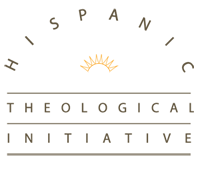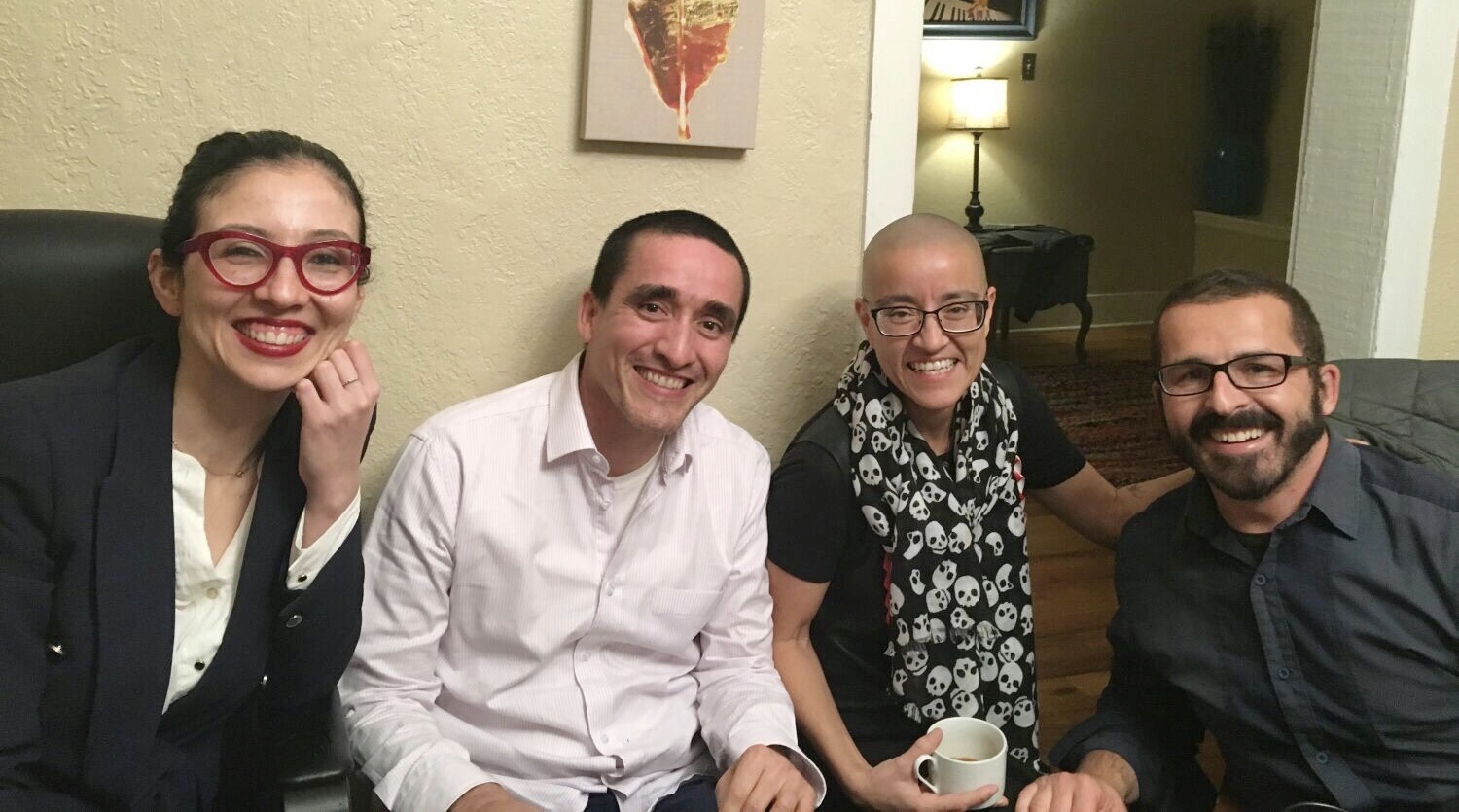Dia del Amor y la Amistad
HTI En Conjunto Association builds relationships strengthening a support network for Latine scholars in religion and theology. ECA celebrates el Dia del Amor y la Amistad to highlight the value of these friendships.
Manuela
The friends you make as an adult are different from those you know from childhood. This is especially true when you are an immigrant. Friends made in the diaspora may never meet your parents, siblings, or grandparents, and will probably not attend their funerals. They may not speak your language or know your habits. You will not know theirs. You are not “at home” when you find each other first. In this context of finding friends in strange places, Svetlana Boym speaks of a “diasporic intimacy” which is “not opposed to uprootedness and defamiliarization but constituted by it.”[1] This “diasporic intimacy” does not encourage withdrawal from public life nor political indifference; instead, it expands social worlds precisely because of the absence of tacit, private bonds. It always has an accent.[2] The temporary home that friends in strange places occupy together needs to be remade again and again.
Xochitl, Luis, Julian, and I come from three different countries and live in three different cities. We would have probably not become close friends had it not been for our chance encounter at HTI. During that first summer, we slowly and gently wandered towards each other amidst discussions of dissertation projects, the uncertainty of the academic job market, and our respective relationships with the theological communities that have shaped our lives. For the last couple of years, we have met weekly through an online platform and have continued our conversation without a set agenda, sometimes recognizing ourselves in each other in surprising ways. In the midst of it all, we see glimpses of each other’s worlds: children, partners, pets, and other friends and family walking on and off the computer monitors (and in and out of our lives) with or without a greeting. Briefly and without much preparation, we have to create a temporary moment where the four of us can come together while remaining open to those others who are not fully visible on the screen. This all dissolves after each meeting ends, but what remains is the willingness to make space for each other’s loved ones, dreams, and desires in imagining a better future. I thank Joanne and Angela, in particular, for creating the conditions of possibility for new friendships to emerge without demanding that they should, and for celebrating them as ends in and of themselves.
-Dr. Manuela Ceballos
[1]Svetlana Boym, “On Diasporic Intimacy: Ilya Kabakov’s Installations and Immigrant Homes,” Critical Inquiry 24, no. 2 (Winter, 1998): 498-524; 499.
[2] Boym, 524.
Luis
When I read Manuela’s account of our friendship–of the journey that four of us have shared weekly for a few years–I could not help but think that her words were a fitting metaphor of what this journey means. Her words beautifully capture our “diasporic intimacy,” a notion I was not familiar with and that has the power to condense and visualize a plethora of emotions, feelings, and experiences common to our migratory souls. What I find most compelling is that my friend sharing her knowledge, introducing us to that new way of naming an experience is a metaphor for the kind of friendship we have been forging in the last years: we are invested in, among other things, helping each other to be an alien without being alienated. This knowledge we share among us is a wisdom that transcends our academic background and our intellectual goals. It connects our migratory beings to our roots while hinting at existential journeys in uncharted territories, both geographical and emotional.
-Dr. Luis Menéndez-Antuña
Manuela, Julian, Xochitl, Luis
“The temporary home that friends in strange places occupy together needs to be remade again and again.”
-Dr. Manuela Ceballos

